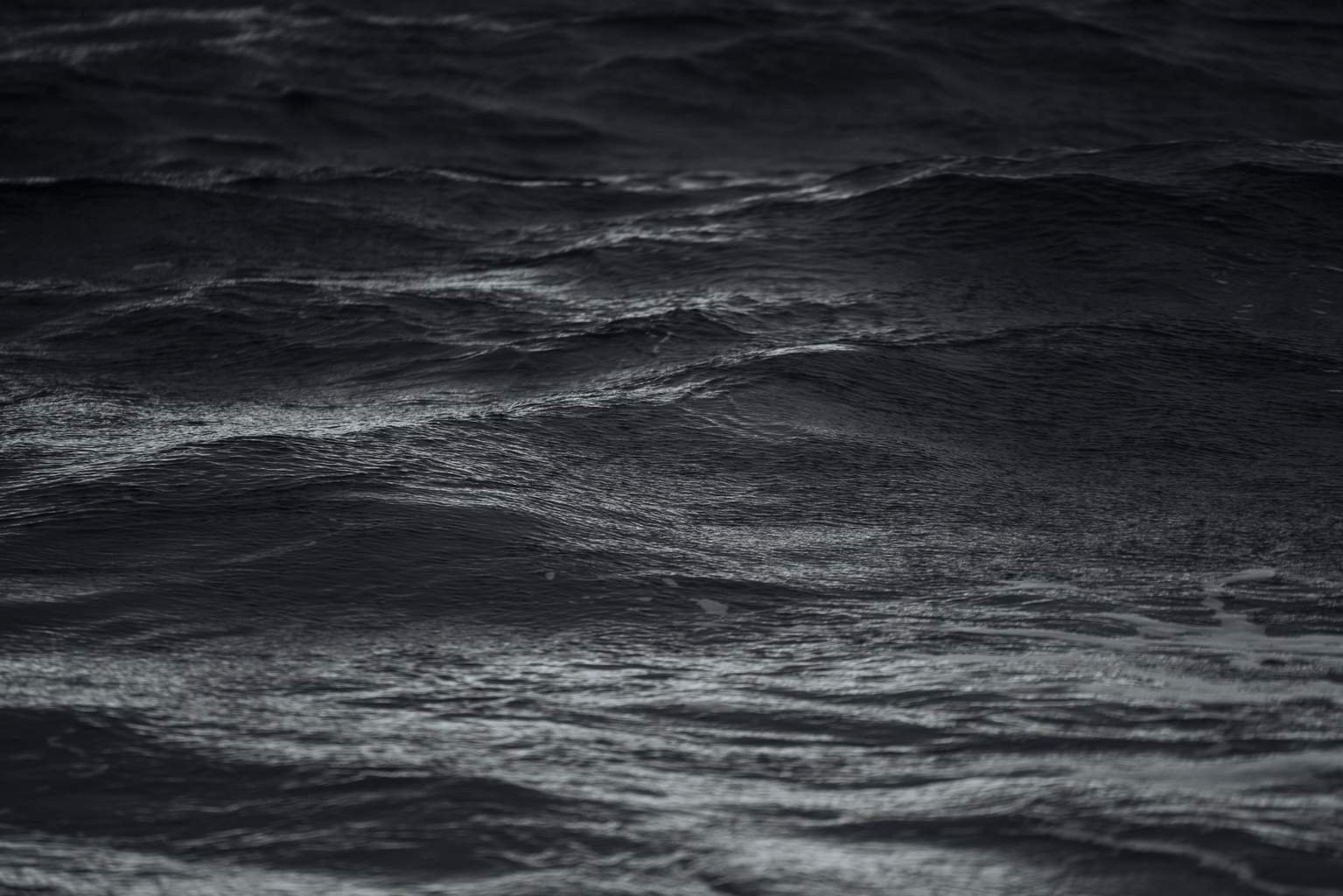You dropped it in the ocean so as hide it. But no, that’s not quite the right word—for hiding implies from someone, and no one was looking for it or would think to find it here. Hiding also suggests a temporariness. One hides something only later to reveal it. To hide something for good, one buries it.
Yet it seemed wrong to think of drawing the small parcel from your coat pocket as you leaned over the rail of the whale watching boat that afternoon, letting it slip out of your fingers into the water, to think of that as burying. You looked around, worried about being seen. But everyone else on deck was looking off in the distance for a tail or a spout of water.
You watched as the parcel floated a moment, then sank unceremoniously. As the boat pressed on, you could imagine the small wooden box swaying downward until it rested on the ocean floor. Yet all that water did not exactly bury the thing. Not made of earth, the ocean could not truly put it to rest.
As a child, you had been unsettled by the phrase ‘a man buried at sea’; you couldn’t understand how anyone could dig a grave at the bottom of the ocean, how they could pull the casket down, then cover it up. Wouldn’t the currents wash the dirt away and reveal the body? When you learned that it meant they simply let the body slip off the ship into the ocean, you were repulsed by the thought, the slothfulness and incompleteness of the act.
But you now have done the act yourself, buried but not buried, let the parcel fall into the immense anonymity of the sea. And since then, you have not spent a day without thinking about it. Sometimes you imagined the parcel jostled by the waves or the tail of a large fish. Other times you pictured it catching the hook of a fishing line or the net of a trawler. Or you imagined it scuttling across the ocean floor, incrementally, pushed by the currents so that it seemed almost a living thing again.
They told you before he was out of the womb that he would not live long. The arrhythmic pulse, a tell-tale heart. You said no matter, you would care for until it stopped. Then return it to a watery place, where it might feel comfort.
But now you find yourself going to the shore each day, as though the thing might wash up on the beach. You believe it is not comfortable, alone on the ocean floor. It is trying to come back to you, even though it is only ash in a box. You imagine that if you do not find it, it will be discovered by a fisherman or an early morning collector of shells. Then, years later, you will see it in someone’s living room or alone out on the curb.
When you are not at the shore, you find yourself watching what flows from faucets, as if your box might come through the small metal opening. You come to believe that all water is part of the same body, one endless being, like a grove of aspens connected by the roots. You believe it might return to you from any source. You look at the sky when it rains, wondering if it might fall from a cloud. You look for it in a glass of water at a restaurant, in a street puddle, in your own tears.
Soon it feels certain that you will find it, that you alone will find it, for you have buried it from everyone but yourself.
One day you wake from a frightening dream. In it, your tiny wooden box is still lying on the ocean floor, still as a stone, wedded to the floor like a shipwreck. It has not gone anywhere at all. You see then how well the sea, with its thick salty water, preserves the things it collects. Your box will never disappear. It will always wait for you.
That morning, you return to the shore, certain that it will never wash up at your feet. Still you feel the thread that tethers it to you. You place a hand in the salt water, feeling the tug. Without taking off your clothes, you step in the water, feeling you are a mother all over again, the cold sacrifice of everything. You start walking, then swimming. By effort or current, you will return to it. You know eventually you will be pulled under and sink down until the two of you are rejoined, there on the ocean floor, your body beside your tiny box, almost as if buried at sea.
Nathan Alling Long’s has appeared in over a hundred journals and anthologies, including Story Quarterly, Tin House, Glimmer Train, and Crab Orchard Review. He lives in Philadelphia, and teaches at Stockton Univeristy. “Buried” is part of a fifty story collection of flash fiction seeking publication. More can be found at https://blogs.stockton.edu/longn/.
Image by Tobias van Schneider via unsplash.
